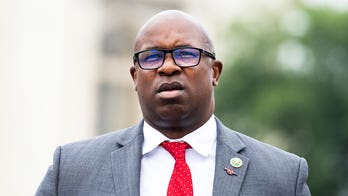Meta CEO Mark Zuckerberg has expressed regret over Facebook's past actions, acknowledging pressure from the Biden administration to censor COVID-19 content. His admissions mark a significant shift in the company's stance on free speech and raise fundamental questions about the influence of politicians on tech giants.
In a letter to House Judiciary Chairman Jim Jordan, Meta CEO Mark Zuckerberg has admitted to regrets over Facebook's handling of COVID-19 content. He acknowledged that senior Biden administration officials repeatedly pressured the company to censor certain content, including humor and satire, and expressed frustration when their requests were not met.

Wake-Up Call for Big Tech: Zuckerberg Admits to Censorship and Pressure
Zuckerberg's revelations have ignited a debate about the undue influence of politicians on tech giants. The Biden administration's pressure tactics, while not always successful, raised concerns about the erosion of free speech and the role of private companies in shaping public discourse. Facebook's decision to demote a New York Post story about Hunter Biden's laptop also highlighted the complexities of election-related content moderation.
The Biden White House has defended its actions, arguing that it encouraged responsible actions to protect public health and safety. However, critics maintain that the administration's pressure tactics went beyond reasonable oversight and amounted to censorship. The White House's role in influencing Twitter's pandemic content moderation further underscores the extent of political involvement.

Wake-Up Call for Big Tech: Zuckerberg Admits to Censorship and Pressure
Zuckerberg also admitted that Facebook should not have suppressed the New York Post story about Hunter Biden's laptop. The story was initially dismissed as Russian disinformation by intelligence officials and Biden himself. However, subsequent investigations have confirmed the authenticity of the laptop's contents. Zuckerberg's apology highlights the challenges of navigating controversial election-related content.
Zuckerberg's admissions have broader implications for the relationship between politicians and tech giants. While lobbying is a common practice in politics, the secrecy and lack of accountability surrounding tech-related lobbying raise concerns about the potential for undue influence.

Wake-Up Call for Big Tech: Zuckerberg Admits to Censorship and Pressure
The recent announcement of Elon Musk's endorsement of Trump has prompted a wave of liberals to abandon Twitter and join X, a social media site founded by Zuckerberg. This exodus underscores the continuing debate over free speech and the role of tech giants in society.
Zuckerberg's confessions and the ongoing controversy over X and Twitter have raised fundamental questions about the balance between freedom of expression and online safety. The influence of politicians on tech giants, the role of private companies in content moderation, and the potential for censorship remain at the heart of this complex debate.

Wake-Up Call for Big Tech: Zuckerberg Admits to Censorship and Pressure
Mark Zuckerberg's admissions have served as a wake-up call for Big Tech. The acknowledgment of censorship and political pressure has ignited a debate about the role of tech giants in society. As the battle over free speech continues, Zuckerberg's words will undoubtedly shape the future of online discourse and the relationship between politicians and the digital realm.










